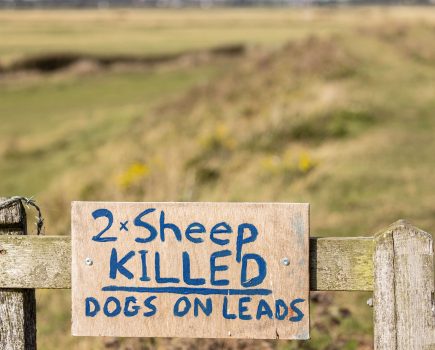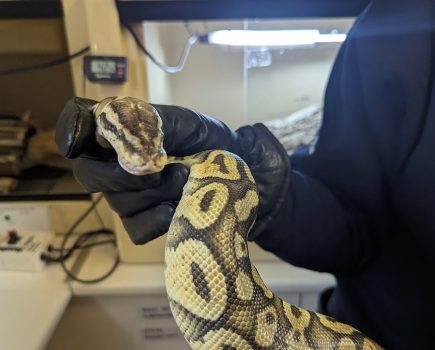AUG 20. 2013: A group of young British smallholders have set up an alliance – and they were represented at an international meeting in Indonesia
A group of young British smallholders have set up an alliance – and they were represented at an international meeting in Indonesia Smallholders in England and Wales at last have an organisation to represent them – and it was launched onto the international stage at a meeting of 180 peasant groups in Jakarta. It is hoped that the new Land Workers’ Alliance will give a voice to the thousands of small scale farmers, and offer an alternative vision to that of the corporate and large scale commercial farming interests. Jyoti Fernandes, from Dorset – pictured here milking her house cow – and other members of the newly formed Alliance, attended a global meeting of La Via Campesina, a movement which together can boast 200 million members in more than 80 countries. La Via Campesina was founded in 1993 to campaign for the rights of small-scale and traditional producers, growers, pastoralists and fisherfolk worldwide. “Food and farming aren’t just about market economics and just getting people calories in their body; it’s got this huge social and cultural dimension to it,” says Jyoti. “Many people question the fact that we chose to be part of a peasant organisation because in the UK this word has come to have such negative connotations, but internationally the word peasant simply means a smallholder. It has only become a dirty word because many classes of society are marginalised and a land based livelihood degraded. This still happens today – prices for food are well below the cost of production and farming knowledge is undervalued. We need to reclaim the word and reclaim the image of smallholder agriculture.” “Small farmers hold the knowledge we need to produce food in a sustainable way – food that is usually distributed within the local economy. Peasants will be the heroes of the future as the population of the planet heads towards 9 billion. Study after study has confirmed that small farms can often produce more food per hectare than industrial farms. Smallholders currently produce 70% of the worlds food supply, a fact that we lose sight of in the UK were farmers are less than 1% of the poulation.” The Land Workers’ Alliance will have three broad objectives. Firstly to identify and organise campaigns and lobby UK and European parliaments on issues affecting the livelihoods of small-scale producers. Secondly to provide a network for producers to share farming skills and knowledge through on-farm training, tours and working groups. Thirdly to show solidarity with peasant farmers throughout the world who are fighting to maintain control over their lands and livelihoods and to make smallholder farming a way of life for the future. Fernandes and her husband live at Fivepenny Farm, a highly productive 20-acre Dorset smallholding, producing vegetables, herbs, meat, eggs and cheese and generating its own electricity from small wind turbines and a set of solar panels. They sell directly to consumers at the weekly market in nearby Bridport. “People have to be pretty creative to move to the land,” says Fernandes, who has long campaigned to change planning laws so that making a living off the land is easier. “People who have a lot of money and want to live in the countryside with a farmhouse can outcompete at an auction any day people who want to do a land-based farming industry. The countryside isn’t just this picture-perfect place for people to go and retire to. It needs to be a living, working countryside.” So what do small farmers in south-west England have in common with peasant farmers in Africa or India? Fernandes says the lives of her counterparts in poor countries are similar to hers: “They say, ‘Oh, you’re a farmer too, so what do you have?’ and I say, ‘Well, I’ve got two cows and I milk them every day, and I’ve got chickens,’ and they say, ‘Oh, I’ve got cows as well,’ and we talk about that and who is looking after the cows while you’re away. The practical realities of life are pretty much the same – you get up in the morning, you milk the cows, you have to do something with your milk,” “Farming has caught the imagination of a new generation of young people who are particularly politically aware,” says Ed Hamer, who has a Community Supported Agriculture market garden in Chagford, Devon. “Growing food is a very positive reaction to what many see as problems of globalisation. One objective is to address the lack of representation of small farmers here in the UK.” Simon Fairlie, a smallholder and editor of the Land magazine, adds: There hasn’t really been an effective organisation in Britain representing small farmers, like for example La Confederation Paysanne in France – and there is a need for it. Support for small scale farming such as agricultural extension services, land settlement programmes and county smallholdings has been whittled away and there is no acknowledgement in government that small-scale farmers (who do not benefit from the EU subsidies that large landowners are given) need support, or even that they exist. Large-scale farming can produce the food, but so can small-scale farming, but with less machinery and more human interaction — and small farms are more inclined to focus on producing high quality, fresh local food.” Members of the new alliance share the idea of ‘food sovereignty’, which insists on the right of people to produce for themselves and their communities and rejects corporate control of the food system. They say this has growing resonance in the UK, where less than 1% of people work on the land but there are many traditional farmers, particularly in the dairy industry who carry on farming in the face of low prices and increasing numbers of smallholders taking up farming with new ideas. “People stay in this country stay in agriculture because they believe in it,” says Fernandes. “Food is really becoming an issue at the front of public consciousness. “I think people are really realising what we lose when we lose a good, healthy food culture. And instead of constantly fighting a system that’s bad, we want to create positive alternatives. How can we take the right steps so that in 50 or 60 years we have enough people in Britain engaged in agriculture with enough skills and enough access to land and resources to be able to provide the food we need? We want to show that smallholdings can be productive.” Patrick Mulvany, chairman of the UK Food Group, says the alliance may serve as a ‘lightning rod’ for growers, gardeners, small farmers and others looking for alternative food systems in England and Wales (the Scottish Crofting Federation is already a member of La Via Campesina). “To have a group in England is wonderful. At the moment, the farming debate is dominated by NGOs and policy wonks. These people, instead, are spending most of their time growing,” he says. MORE: The Land Workers’ Alliance is for anyone actively involved in farming, fishing or fibre enterprises who agrees with the principles of food soverignty. All smallholders who earn a substantial portion of their livelioood on their land would benefit from joining. To join, see their website: www.landworkersalliance.org.uk Recent campaigns Members of La Via Campesina in Europe have recently taken part in a number of campaigns: • Reform of the European Union Common Agriclutural Policy- encouraging more support for small farms; • Protecting farmers rights to save seed under the EU plant material act; the European branch of Via Campesina is currently going through the proposed EU animal health controls to see what other changes might be detrimenal to smallholders; • Protecting the social security benefits for small farmers during tax credit reform; • Analysing DEFRA policy and proposing changes to encourage core production of food by small farms for local economies rather than export; • Lobbying to make planning laws more accessible for smallholder farmers to build housing on their land; • Campaigning against UK government support for the New Alliance in Africa, which increases corporate control of agriculture instead of smallholder agriculture; • Supporting farmer-owned biodiverse seed companies in India and Zimbabwe.







